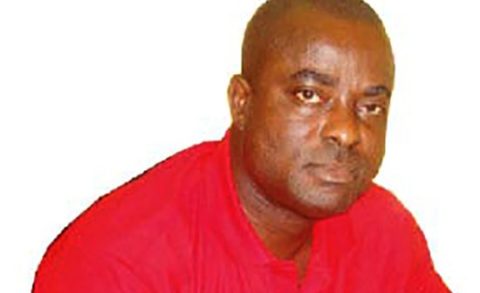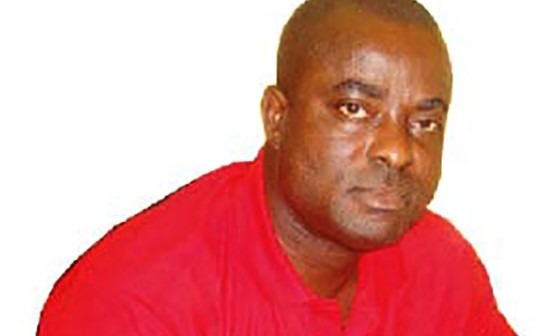
In the face of the furore generated by the arrest of Mr. Ebere Wabara some weeks ago by the Abia State Police Command on charges of sedition and the orchestrated campaign of criticism against the Abia Police and the government of Abia State by a section of the media, it is rather significant, at lease for record purposes, to review Wabara’s role in his unrestrained bout of attack against the person of the governor of Abia State and the first Abia family. My review is against the backdrop of professional conduct as it relates to practice and partisanship.
You cannot be in full journalism practice and be openly partisan at the same. This is where Wabara shot himself on the foot and this is a cardinal point which the writers of those scathing editorials have all missed in the issues relating to Wabara. In the mass reflex of angry editorials, no paper has taken a critical review of the moral and ethical conflict between practice and partisanship. Yet, we all watched Wabara traverse this dangerous landmine of professional misconduct with reckless courage. This deliberate omission, no doubt, has betrayed an implicit imbalance of argument by the editorials and other commentaries which have been unleashed, in unison, against the Abia State government.
Could Wabara be functioning as an Associate Editor of The Sun and as the Media Advisor to former governor of Abia State, Dr. Orji Uzor Kalu and at the same time maintain his professional neutrality in a matter involving his boss? Did he show adequate professional responsibility as a “seasoned” editor by his descent to outright insult, invectives and curses against the person of the governor, Ikuku and well-meaning elders of the state? Did the authors of the commentaries in defence of Wabara border to read some of his articles in The Sun to appreciate the kind of abusive language deployed by him against the governor and other state functionaries including this writer? There is a point of departure between the right of opinion and outright campaign of calumny.
It could have been understandable if Wabara was a guest columnist to The Sun or a major contributor without being on the payroll of the paper. There is a major conflict between his professional responsibility as an editor of a newspaper and his duty responsibility to his boss. This poses for him an obvious clash of roles. He is contending with an open, unmitigated clash between practice and partisanship and yet, regrettably, all the media have missed this point in their editorials which have vehemently criticized the action of the Abia State government in instituting a suit against Wabara. I bring this out because as a career journalist I am aware of the ethical codes of practice, and this why I have deliberately remained an unpaid columnist since I became a political apologist.
He who comes to equity must come with clean hands. Wabara, to say it mildly, transcended the borders of decency in his “war” against Governor Theodore Orji. This was evident in his manner of engagement as reflected in his language and approach which conveyed nothing but open hatred, hostility and disparagement. He was so much carried away by the pride of his new appointment that he threw reason overboard. He had claimed to be an emeritus editor yet he forgot that professionals of that calibre do not descend so low no matter the monetary gratification. The emeritus age is the age of reason and common sense (apologies to Thomas Paine). It was out of place for Wabara to call a seating governor or anybody for that matter a – “buffoon, clown, idiot” and many other abuses.
While the media must defend her own and protect her practitioners, it is imperative for the media to also draw the line between practice and brigandage. The mere fact of being a media practitioner is not a license for engaging in subversive or unlawful acts. The journalist is first and foremost a Nigerian citizen subject to the constitution and the laws of the land. He is also subject to the popular norms and moral codes. The freedom of expression which is the cardinal tenet under which the press function and the right of opinion do not constitute the right to engage in sabotage or sedition. So for balance and objectivity, the media must be bold to call Wabara to order for he obviously strayed from the norm. He allowed himself to be an instrument of political brigandage.
Indeed, it is interesting that my name has featured prominently in this episode. First is that Wabara had earlier taken up almost a full-page in The Sun to lampoon and discredit me in what he later described as “puncturing my sterile contribution” over an opinion piece which I published in some major national dailies and which was a reaction to Dr. Orji Uzor Kalu’s loquacious criticism of his successor. Second is that in his last public defence which he entitled, “My Abduction Story”, Wabara again narrated his telephone conversation with me in an effort to justify his “war” against Governor Orji. But, he failed to inform the reading public that prior to this latest capitulation, he had called me severally requesting that I connect him to the governor so that he can personally tender an unreserved apology to him.
Yet, he could also not see the contradiction which is explained by an Igbo proverb: “If you call a man a thief at the market square and later come back to say he is no more a thief after the market has dispersed, what of those who have left the market with your original message?” I think the appropriate step for Wabara is to also come to the public sphere and recant his seminal insults against the Governor and well-meaning elders of the state whom he called all sorts of names. Wabara cannot be seeking private audience with Ochendo while at the same time instigating all manners of negative reportage which impugn the character and personality of the indefatigable governor of Abia and the state in general.
For record purposes, it must be known that Wabara was arrested through a Warrant of Arrest which is issued only by the court. The Abia Police followed all due processes in the arrest of Wabara and it should only have taken the court to order for his release. The framing of a “Gestapo-like abduction” is all but an attempt to weep up sentiments. The court is an instrument of democracy and it will only take the court to determine whether Wabara was right or wrong. He has jumped bail but the court has not closed shop.
Adindu is the President-general of the Abia Renaissance Movement (ARM)







